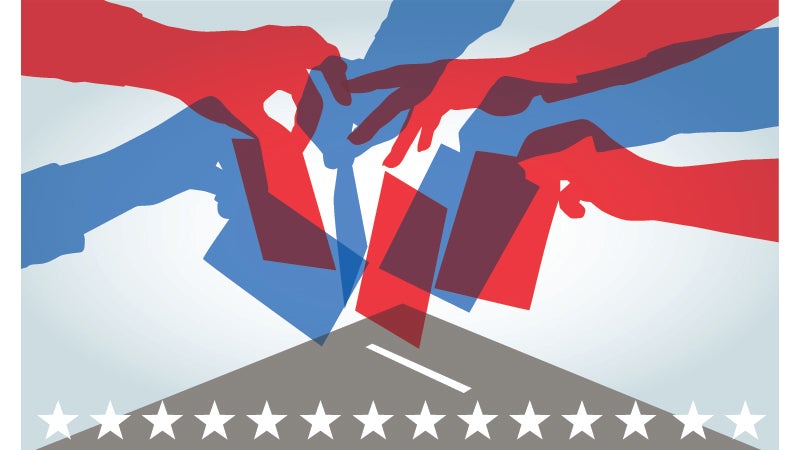Jim Beam column:Voting changes are on way
Published 10:30 am Sunday, March 6, 2022
|
Getting your Trinity Audio player ready...
|
By Jim Beam
American Press
Voting will never be exactly the same again in many states, including Louisiana, thanks to former President Donald Trump’s unsubstantiated claims that the 2020 presidential election was stolen from him. In fact, the 2020 election is considered by many experts to have been one of the most secure in the nation’s history.
Nevertheless, Republicans who control about half the legislatures in this country are determined to make voting changes. The Louisiana Legislature has already begun the process.
Louisiana’s newly created Voting System Commission isn’t ready to tell Republican Secretary of State Kyle Ardoin what kind of voting process it is going to recommend he purchase, but there aren’t that many choices.
Ardoin has defended DREs in the past, saying they were never connected to the internet. However, their days in this state are numbered.
Act 480 of 2021 by state Sen. Sharon Hewitt, R-Slidell, removed all references to “electronic voting machines” in prior law. That leaves three other choices — paper ballots, optical scan paper ballot systems and ballot marking devices (BMDs).
In addition to hand counting, voters can mark paper ballots that are then fed into optical scanners at the precincts or at central locations.
When scanned at the precincts, the scanner can inform the voter of an error, which can be fixed, or another vote is cast on a new ballot. The original isn’t counted.
Scanners are never connected to the internet, so they can’t be hacked remotely. And if technical problems crop up, there is a paper record for each voter’s ballot.
BMDs were originally created for disabled Americans but are now used by all voters in many states. They are devices that allow the voter to make choices on the device and get a printout that is either fed into a scanner or counted by hand.
Legislators in the GOP states prefer hand-counting paper ballots because they don’t trust the machines. However, The Advocate reported that only 1,336 jurisdictions in 16 states , out of nearly 10,000 nationwide, use hand-counted ballots. That’s according to the latest Election Administration and Voting Survey Comprehensive Report. More than half the jurisdictions use ballot-marking devices with attachments that create voter-verified paper audit trails.
The Louisiana voting commission delayed its recommendation after state Rep. John Stefanski, R-Crowley, said, “I’m not in a position to be able to make a vote today until I physically see what a ballot-marking device is, what types of hand-marked ballots look like.”
Ballotpedia, called the encyclopedia of American politics, compiled a list of voting equipment used by all the states in the Nov. 3, 2020, presidential election. Louisiana operates elections at the state level, but most let local jurisdictions conduct their own elections.
All-mail ballots were used in California, Colorado, Hawaii, Nevada, New Jersey, Oregon, Utah, Vermont, and Washington state. All registered voters were sent a ballot in the mail, just like absentee voters in Louisiana.
Some states used just hand-marked paper ballots and BMDs. Others used hand-marked paper ballots, BMDs and DREs with a paper trail.
Fourteen states hand-counted their ballots and all states — except Louisiana — also used optical scanners to count votes. Louisiana used its DREs.
Ardoin said he favors a touchscreen system that creates a paper receipt for the voter to verify before casting the ballot. The ballot marking devices (BMDs) do just that and once the vote is verified the paper receipt is either fed into a scanner at the precinct or sent to a central location for tabulation.
As we said at the beginning, voting will never be the same in Louisiana, whatever system the state ends up purchasing. We can only hope the changes don’t delay telling voters who won the election, which Louisiana has been able to do quicker than most states.





